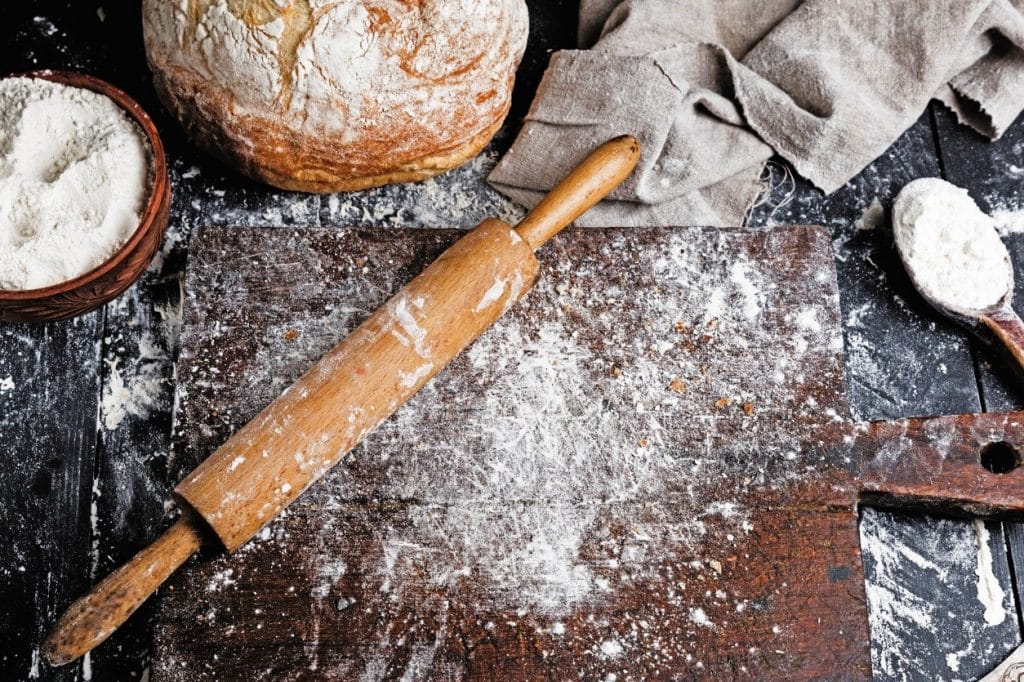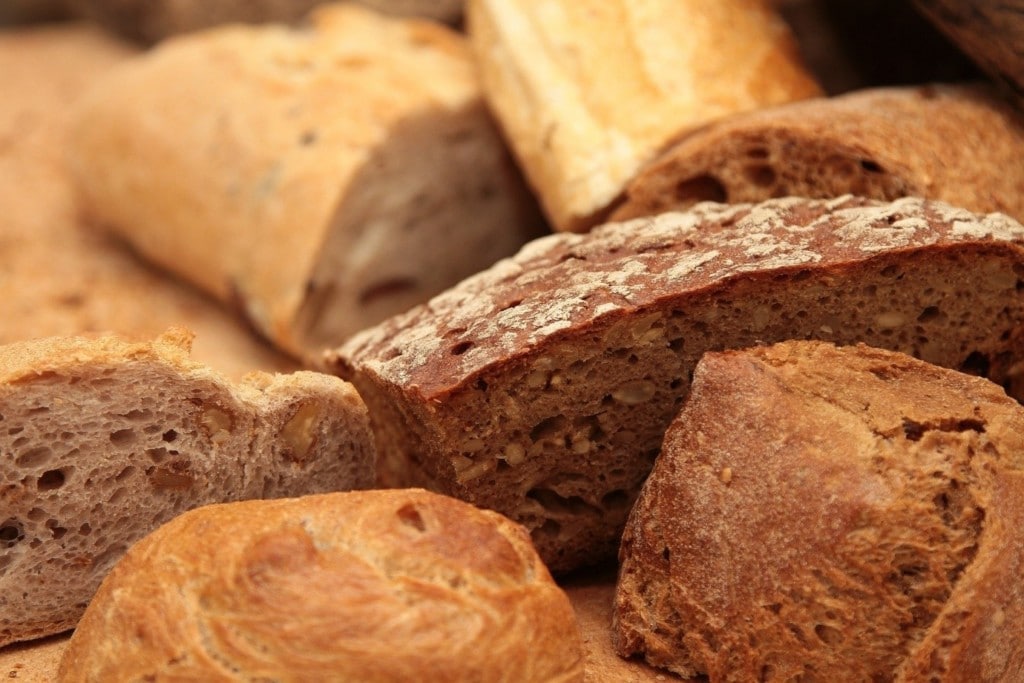The Benefits Of Extra Virgin Olive Oil As A Substitute For Butter In Baking? The Benefits Of Olive Oil
Updated September 22nd 2024

Summary
- Extra virgin olive oil works well as a healthier fat substitute for butter in your baking if you follow some key measurement tips.
- The health benefits of extra virgin olive oil as a butter substitute can help to keep your cholesterol in check as well as offering a host of polyphenols and antioxidants.
- Generally, you can use 3/4 cup of olive oil for every cup of butter and different varieties of Extra Virgin Olive Oil can help you add exciting flavours to your baking recipes.
Contents
Why Use Extra Virgin Olive Oil (EVOO) As A Substitute For Butter
Are you ready to elevate your baking game while making healthier choices? It’s time to explore the wonders of using extra virgin olive oil (EVOO) as a substitute for butter. This versatile and nutritious oil isn’t just for salads and sautés; it can transform your baked goods in ways you’ve never imagined.
In this blog post, we’ll walk you through the benefits of baking with olive oil, how it works as a butter substitute, and practical tips to get the best results. Whether you’re a seasoned baker or just starting out, you’ll find valuable insights to make your treats both delicious and wholesome.
In a world where unhealthy diet and lifestyle is a growing problem, there is a need for a better, healthier way of living. The consumption of saturated fats, for instance, is one of the factors that contribute to this problem. Fortunately, there is a solution that is not only delicious but also beneficial for your health – extra virgin olive oil, widely considered the best olive oil.
Packed with polyphenols, extra virgin olive oil has many olive oil benefits that can help prevent illness and improve overall health. Many people have now turned to a Mediterranean diet that include extra virgin olive oil as its primary source of fat. However, it is also possible to use extra virgin olive oil (EVOO) as a substitute for butter to obtain further health benefits.
Health Benefits of Olive Oil
Extra virgin olive oil is renowned for its health benefits. Unlike butter, which is high in saturated fats, EVOO is rich in monounsaturated fats that are heart-healthy. These fats can help reduce bad cholesterol levels and lower the risk of heart disease. Additionally, EVOO contains antioxidants like vitamin E, which help protect cells from damage.
Enhanced Flavor Profiles
One of the most compelling reasons to use EVOO in baking is its unique flavor profile. High-quality extra virgin olive oil can add a subtle fruity note to your baked goods, enhancing the overall taste. This is particularly beneficial in recipes that incorporate fruits, nuts, or chocolate, as the flavors complement each other beautifully.
Versatility in Recipes
Extra virgin olive oil is incredibly versatile. It can replace butter in a wide range of recipes, from cakes and muffins to cookies and bread. This flexibility makes it an excellent staple for any kitchen, allowing you to experiment with different flavors and textures in your baking.
Although butter has been a staple in baking for centuries, there are some good reasons to substitute extra virgin olive oil for butter. For one thing, olive oil is heart healthy, thanks to its monounsaturated fat content. This type of fat can help to lower cholesterol levels and reduce the risk of heart disease. In addition, olive oil is a good source of antioxidants, which can protect against cell damage and promote overall health. Additionally, olive oil has a higher smoke point than butter, so it is less likely to burn during cooking. And because it imparts a subtle flavour to baked goods, it can be a good way to enhance the taste of recipes without overwhelming the other flavours.
As more and more of us become health conscious, baking enthusiasts have begun to incorporate much more than the simple ingredients of flour, butter and eggs in their creations. They have discovered new and innovative ingredients to substitute as healthier alternatives, including extra virgin olive oil like Morocco Gold.
That bottle of extra virgin olive oil sitting on your pantry shelf can revolutionize your favourite baked treats. While often thought of for salad dressings, marinades and sautéing, your extra virgin olive oil can also be used as a valuable alternative to butter or other fat in your baked recipes.
Why Use Extra Virgin Olive Oil In Your Baking
The value of incorporating extra virgin olive oil as a substitute in your baking is mainly twofold. First, you can enhance the overall flavour profile of your recipe, depending on the variety of extra virgin olive oil you use. Each extra virgin olive oil carries a unique flavour profile that deepens the complexity of your dish. Because the flavour can be so accentuated in baked goods, it is important to use high-quality extra virgin olive oil such as Morocco Gold.
A second reason for using extra virgin olive oil in your baked treats is the health benefits that come along. Extra virgin olive oil has no shortage of benefits for your health and wellness. This monounsaturated fat helps keep your cholesterol in check as well as offering a host of antioxidants that are essential for healthy living. Incorporating a more monounsaturated or polyunsaturated source of fat rather than just saturated fats. Compared to vegetable oils, extra virgin olive oil is free from chemicals and other impurities that compromise both the nutrients and flavour of the ingredient.
Nutritional Advantages Of Extra Virgin Olive Oil For Baking
When you choose Extra Virgin Olive Oil over butter, you’re opting for a healthier fat source. Extra virgin olive oil is packed with essential nutrients like omega-3 and omega-6 fatty acids. These nutrients play a crucial role in brain function and overall well-being. By incorporating EVOO into your baking, you’re making a conscious decision to improve the nutritional value of your treats.
Moisture and Texture
One of the challenges in baking is achieving the perfect moisture and texture. EVOO excels in this area. It helps retain moisture in baked goods, resulting in a tender and moist texture. This is particularly useful in recipes that tend to dry out, such as banana bread or brownies. The oil ensures that your treats stay deliciously soft and fresh for longer.
A Healthier Alternative
Switching to EVOO in your baking is not just a trend; it’s a lifestyle choice. By reducing the intake of saturated fats and incorporating healthier oils, you’re making a positive impact on your overall health. This change can contribute to weight management and reduce the risk of chronic diseases. Plus, it’s a simple swap that doesn’t compromise the taste or quality of your baked goods.
How Does Baking With Extra Virgin Olive Oil Work?

In the art of baking, ingredients with different properties are needed in order to turn a bowl of dough into a delicious, light and flavoursome bread, cake, cookie or anything else you throw in the oven.
Understanding Measurements
When substituting butter with EVOO, it’s important to get the measurements right. Generally, you can use 3/4 cup of olive oil for every cup of butter. This is because olive oil is 100% fat, while butter contains water and milk solids. Adjusting the amount ensures that your baked goods maintain the right consistency and texture.
Mixing Techniques
Incorporating olive oil into your batter is straightforward. However, the mixing technique can affect the final product. When using EVOO, it’s best to combine it with wet ingredients before adding dry ones. This method ensures even distribution of the oil, resulting in a uniform texture. Additionally, be mindful of overmixing, as it can lead to dense baked goods.
Flavor Enhancement
EVOO has a distinct flavor profile that can enhance the taste of your baked goods. Unlike butter, which has a neutral taste, olive oil can add a subtle fruity or peppery note. This characteristic can elevate simple recipes, making them more complex and enjoyable. Experimenting with different varieties of EVOO can help you discover new and exciting flavor combinations.
Health Implications
The health benefits of EVOO extend beyond its fat composition. It contains antioxidants and anti-inflammatory properties that can contribute to overall wellness. By substituting butter with EVOO, you’re not only making a healthier choice but also enriching your diet with beneficial compounds that support long-term health.
Fat, often through butter or oil, works to tenderize, moisten and allow heat to move through the batter or dough to ensure proper baking. Extra virgin olive oil can easily be substituted for butter in several recipes, in everything from breads to cookies to brownies to pies.
But using extra virgin olive oil in a recipe that calls for butter isn’t quite an equal comparison. When a recipe calls for butter, you’ll want to use ¾ of that amount. For example, if the recipe needs six ounces of butter, use just four ounces of extra virgin olive oil.
Why isn’t it an even swap? Extra virgin olive oil is 100% fat while butter is only 80% fat. If you’re swapping regular canola or vegetable oil for extra virgin olive oil, it will be an even substitute.
While this ¾ substitute works for most recipes, there may be times where a little trial and error are required. Usually, if the butter in the recipe is to be melted, the ¾ substitute is fine. This is also the case if the butter (extra virgin olive oil) is creamed with sugar but additional liquid is added in later. However, when making cookies especially, you may need to use even less oil than that ¾ substitute due to the texture of the dough.
There are select times in which an extra virgin olive oil may not be the best substitute to use. For recipes that require the butter to stay as a solid to accomplish the right texture, such as in making a frosting, using a liquid oil may prove challenging.
Why Is EVOO As A Substitute For Butter In Baking So Important?
Heart disease is the leading cause of death in the United States, so it’s important to do everything we can to protect our heart health. One way to do that is to substitute extra virgin olive oil for butter when baking. Olive oil is a heart-healthy fat that can help reduce bad cholesterol and improve blood pressure. What’s more, olive oil is packed with antioxidants that can help protect against heart disease, stroke, and other chronic health conditions. So next time you’re reaching for the butter, consider using extra virgin olive oil instead. Your heart will thank you for it.
